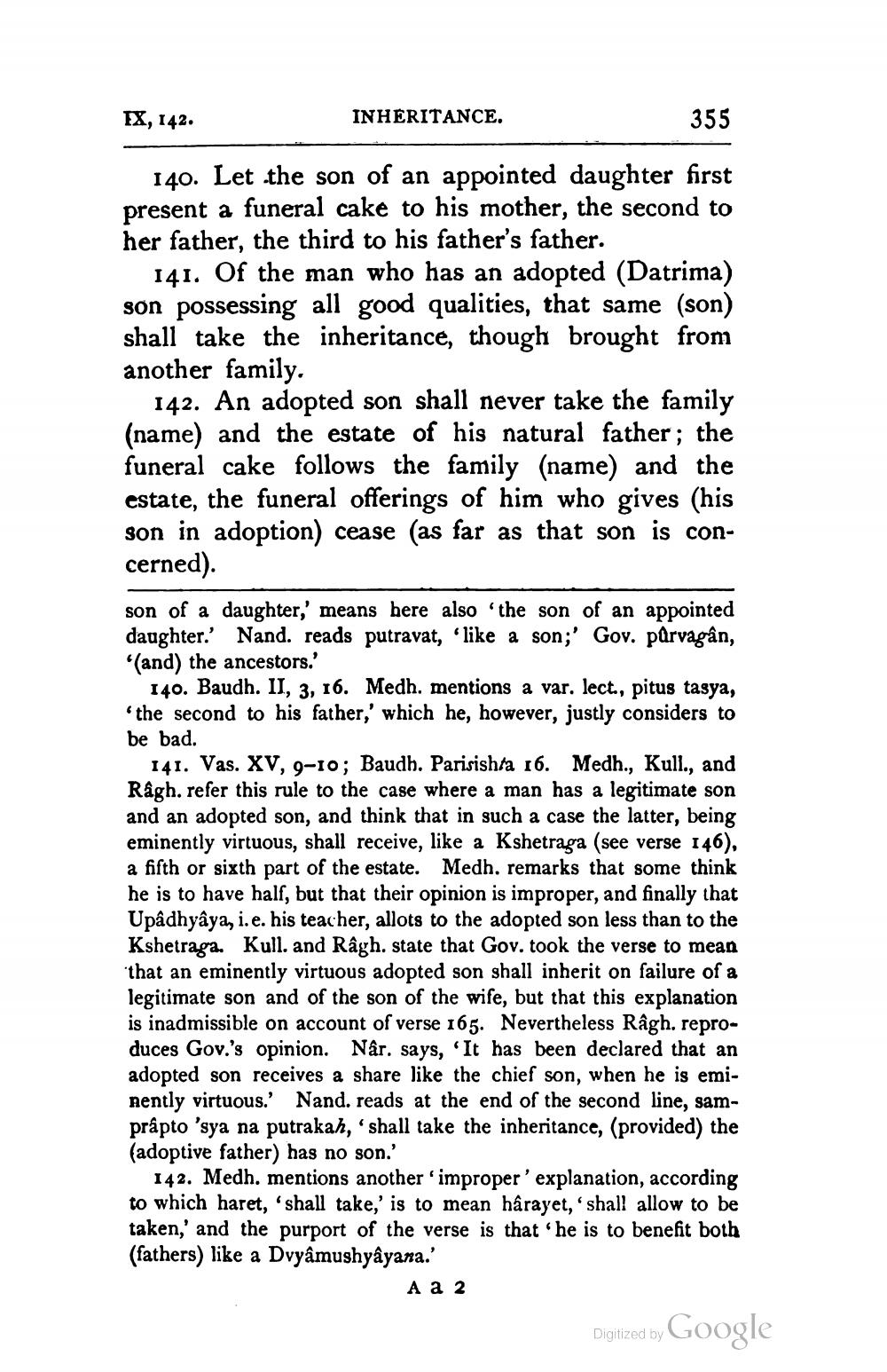________________
IX, 142.
INHERITANCE.
355
140. Let the son of an appointed daughter first present a funeral cake to his mother, the second to her father, the third to his father's father.
141. Of the man who has an adopted (Datrima) son possessing all good qualities, that same (son) shall take the inheritance, though brought from another family.
142. An adopted son shall never take the family (name) and the estate of his natural father; the funeral cake follows the family (name) and the estate, the funeral offerings of him who gives (his son in adoption) cease (as far as that son is concerned) son of a daughter,' means here also the son of an appointed daughter. Nand. reads putravat, “like a son;' Gov. pårvagân, '(and) the ancestors.'
140. Baudh. II, 3, 16. Medh. mentions a var. lect., pitus tasya, the second to his father,' which he, however, justly considers to be bad.
141. Vas. XV, 9-10; Baudh. Parisishta 16. Medh., Kull., and Râgh. refer this rule to the case where a man has a legitimate son and an adopted son, and think that in such a case the latter, being eminently virtuous, shall receive, like a Kshetraga (see verse 146), a fifth or sixth part of the estate. Medh. remarks that some think he is to have half, but that their opinion is improper, and finally that Upadhyâya, i.e. his teacher, allots to the adopted son less than to the Kshetraga. Kull. and Râgh. state that Gov. took the verse to mean that an eminently virtuous adopted son shall inherit on failure of a legitimate son and of the son of the wife, but that this explanation is inadmissible on account of verse 165. Nevertheless Râgh. reproduces Gov.'s opinion. Når. says, “It has been declared that an adopted son receives a share like the chief son, when he is eminently virtuous.' Nand. reads at the end of the second line, samprâpto 'sya na putrakah, shall take the inheritance, (provided) the (adoptive father) has no son.'
142. Medh. mentions another improper' explanation, according to which haret, 'shall take,' is to mean hârayet, shall allow to be taken,' and the purport of the verse is that he is to benefit both (fathers) like a Dvyâmushyâyana.'
Аа 2
Digitized by Google




